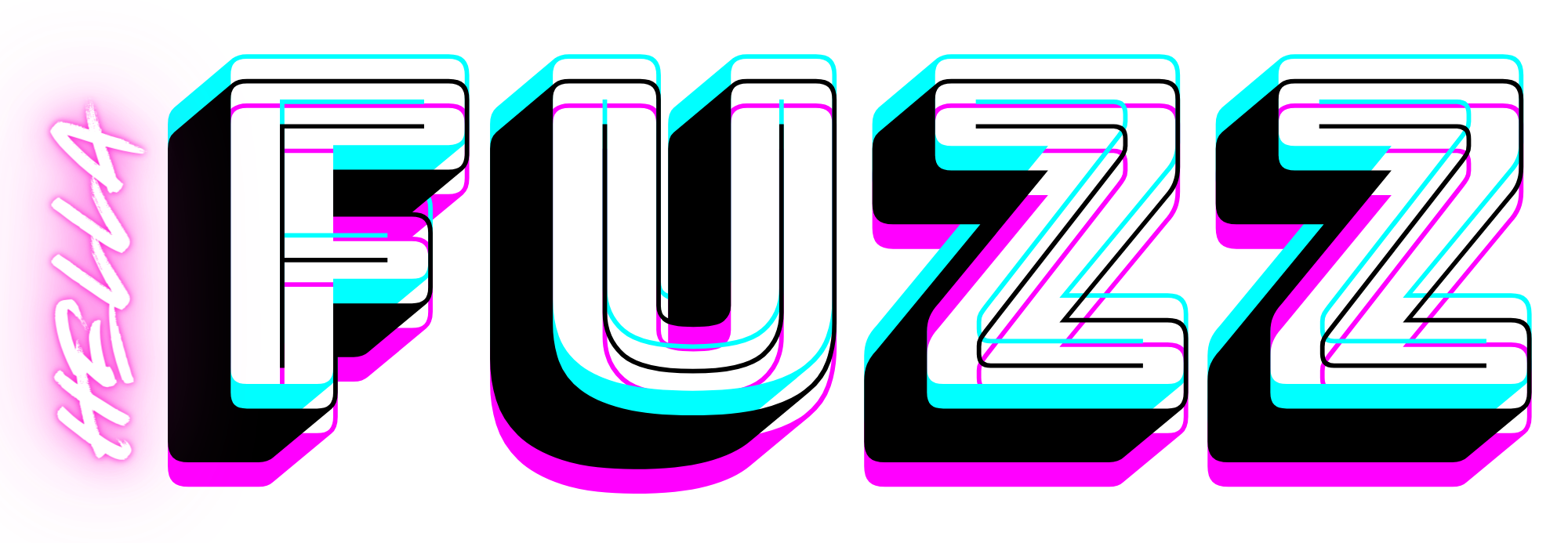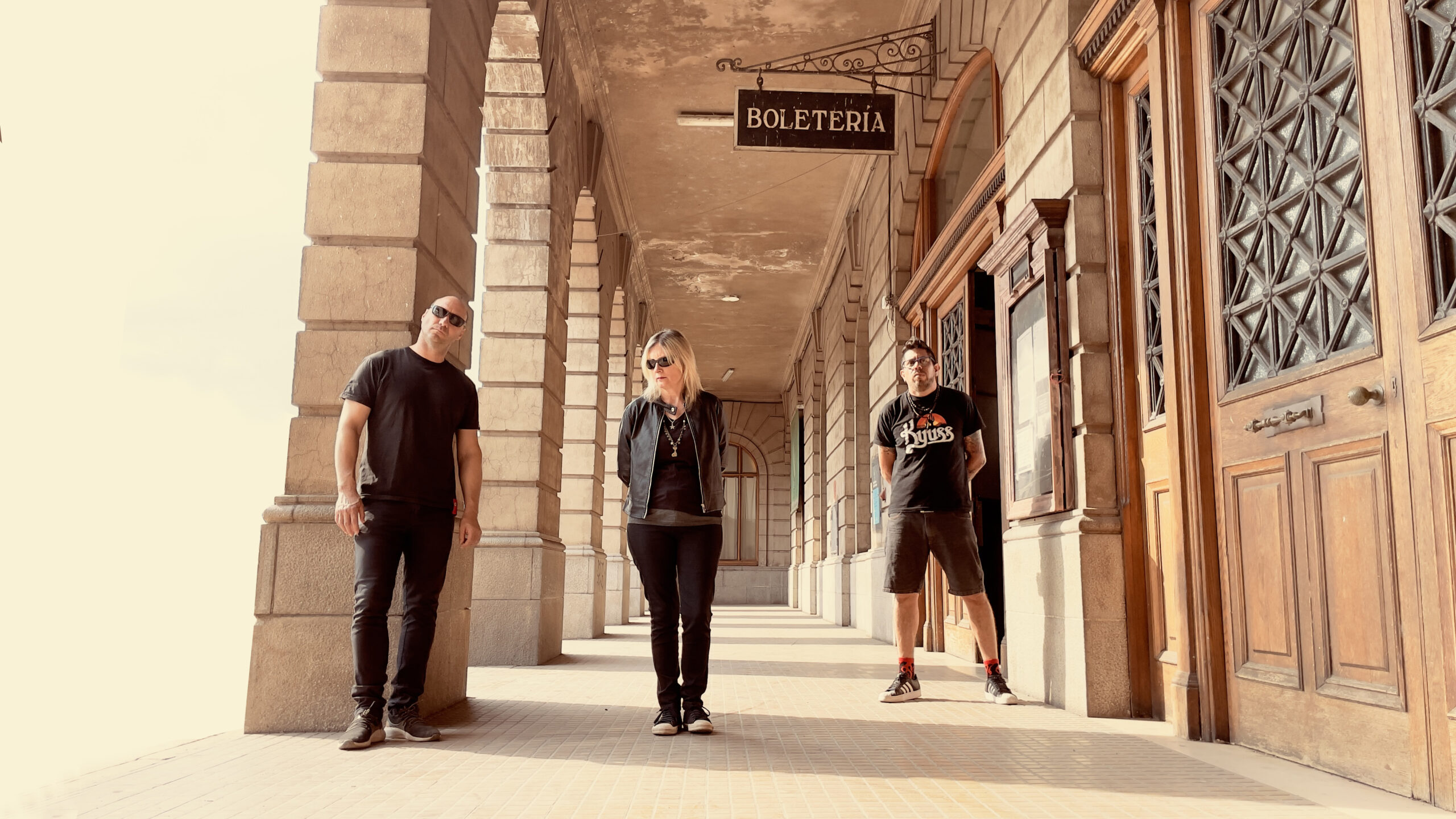
An Interview with SIVA
What’s the story behind your latest song/album?
Well, SIVA had been releasing only singles since 2021, 6 in total, and when that cycle ended with Daylight in early 2024, we decided to take on an EP instead, a collection of 4 songs that go well together, and at the same time are very different in sound and style. The ALERTA – EP has 2 songs out, both in Spanish, “Estaciones” and “Influencer”. The latest one, now also with an English version, we thought it was a good song to connect with our fans overseas, since we´ve been releasing music in that language since the beginning. The whole EP deals with the concept of emergency, a constant state of alert, fast life, social media anxiety, the invasion of AI in everyday life and how the simplest things can now be done faster and better than a human mind, just by typing a prompt, etc.
How has your creative process evolved over the years?
Evolution occurs when you can discover other sounds and styles, when you understand that there is much more in the world at a musical level. Then that evolution happens, that´s what is going on in the band right now, digging deeper into other sounds, and ways of songwriting, which will surely result in our next batch of songs sounding with greater musical maturity.
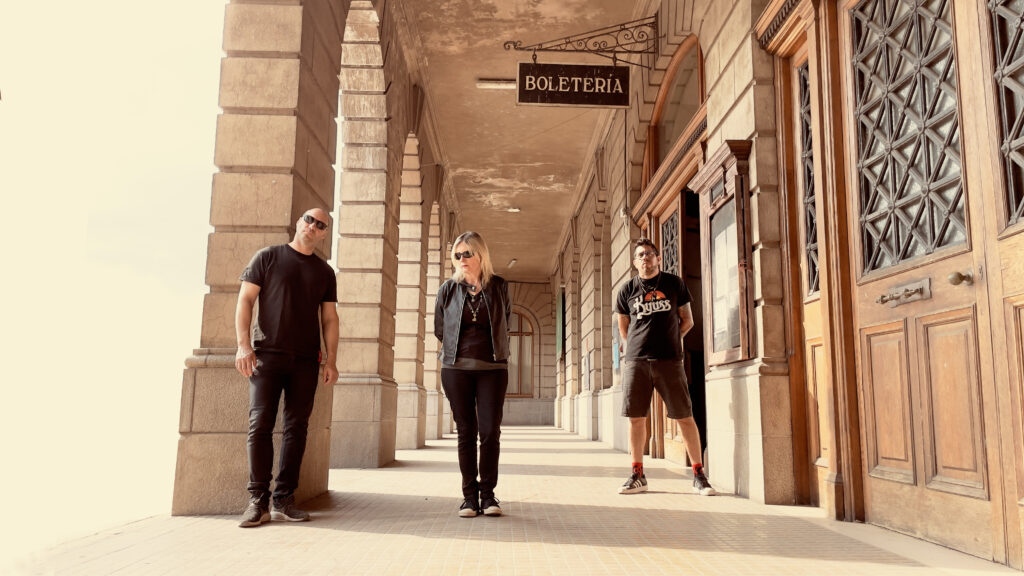
If you could collaborate with any artist, living or dead, who would it be and why?
Oh so many artists we admire, hard to choose from! I think I would love to write a song where we could invite someone great to sing lead vocals, like Shirley Manson from Garbage, or maybe co write a cool song with some of our favorite songwriters like Billy Corgan, Rivers Cuomo, Dave Grohl, Josh Homme. That would be a dream come true!So far, we have been producing collabs with Riff Raiders from Australia (The Rockstar – calling the 90s), and more recently Noodle Boonn from Buenos Aires (on “Safe Place”), and it’s been a great experience, we´ll surely keep inviting artists from all over the worlds to collab with SIVA in the future, as long as they´ll have us!
How do you handle creative blocks or self-doubt?
When there´s a creative block, the best way is for someone else to give you their point of view, unlock so the idea flows again. We work as a team, and try to ensure that these types of situations do not overwhelm us.
What’s next for you—any exciting projects or goals on the horizon?
SIVA is currently preparing the release of a live session recorded in Romaphonic Estudio, a renowned studio in Buenos AIres where some of the biggest names in rock and pop of Latin America work at. These 3 songs will be launched on our @sivarawk Youtube channel very soon. Then, we´ll embark on a national tour over various cities we haven’t been to yet, as well as going back to the capital of Buenos Aires with more live shows.Before that happens, the rest of the EP songs will be released and complete “ALERTA” with the title track – featuring some surprise guest vocals – and closing with “No es el fin” (It´s not the end) an indie rock ballad in the vein of R.E.M. and Nada Surf, a sound departure for us, so we hope people will love it as much as we do!
Please follow #sivarawk on all socials, there’s a lot more to come!
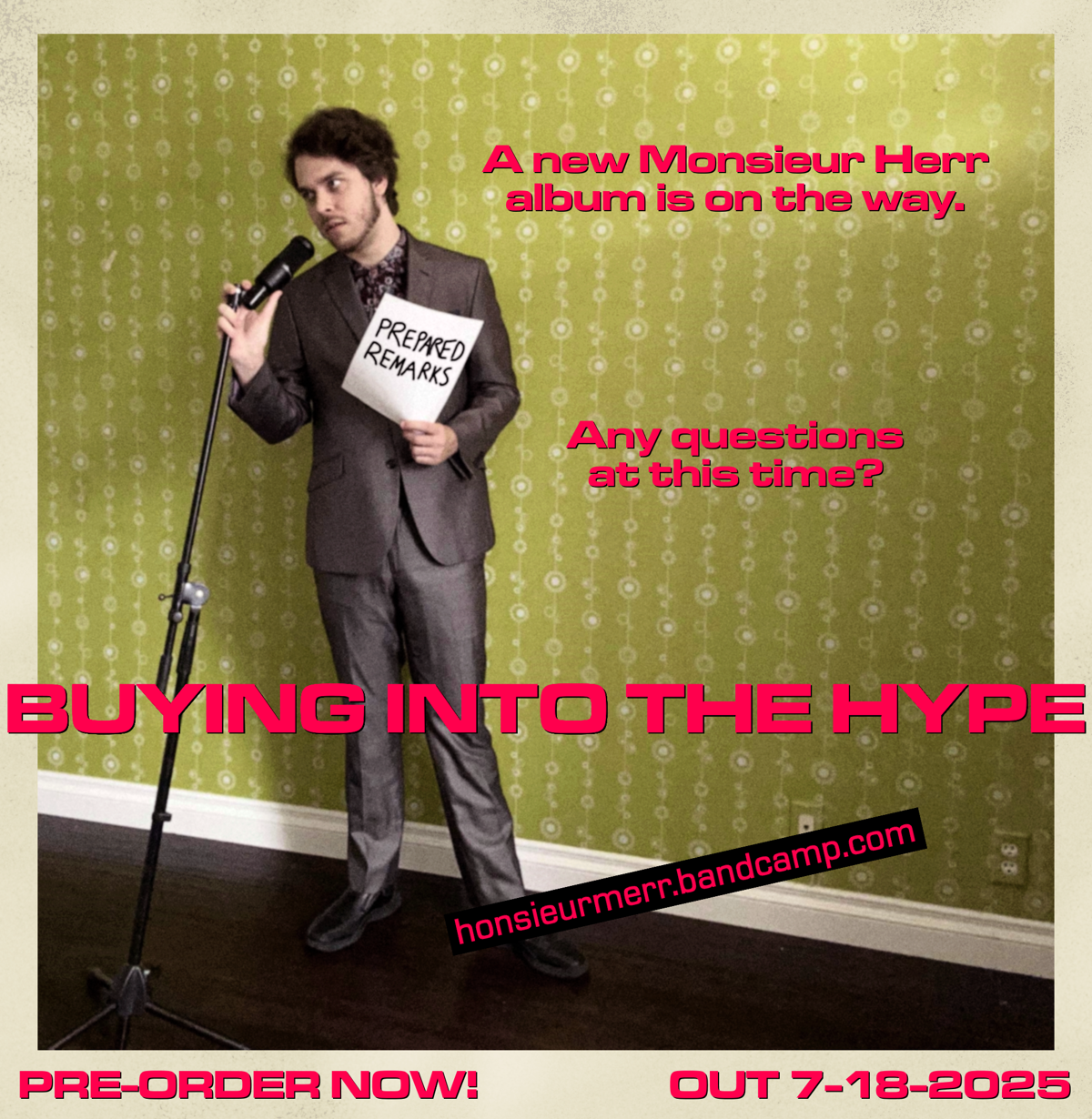
An Interview with Monsieur Herr
What’s the story behind your latest song/album?
The album, “Buying Into the Hype,” was originally intended as kind of a faux-Beatles record, believe it or not, in the vein of the Rutles or Utopia’s “Deface the Music.” It wasn’t intended as anything particularly ambitious at all. Then, as things tend to do, it sort of evolved into something a little brainier. I’d gotten super into the work of Scott Miller, of Game Theory and the Loud Family, and I felt a sort of artistic kinship with that stuff not only on the level of it being essentially pure pop with equal propensity for inventive melody and really Out-There sound fuckery, and not only as a fellow self-deprecating overthinker, but also as a white dude with big curly hair from California (granted, Scott Miller was from NorCal and I’m from SoCal, but still). It’s the kind of thing that really inspires evangelism. I wanted my songs to be on that high level. The single, “Uranium Glass,” more or less mulls on people’s impulses towards nostalgia for an imagined past. I also have another song from the album that’s out called “Irony Poisoning,” which is what it’s about, and I have another coming out early next month called “History Repeating Itself,” which is also what it’s about.
How has your creative process evolved over the years?
I suppose, in a lot of ways, I just got more confident in what I was doing. My actual, physical process of recording hasn’t fundamentally changed much; I just got better at doing it. Learned what mid scoops were and such. I’m sure some more uptight music production people will balk at my admission that I record everything in Audacity, and have since I started, but I’d say the results speak for themselves. I think limitations allow for more creativity in many cases. Peter Gabriel banning cymbals from his third album, for example—kind of a genius move. I got to be clever about how I did things because I had no other choice, plus which I’m stubborn as a mule.

Who or what has been inspiring your music lately?
I was on a bit of a Beach Boys kick anyway before Brian Wilson died, but that really kicked it into high gear. Just beforehand, I’d gotten into the unreleased “Adult/Child” album that was supposed to follow “Love You,” which is probably my favorite non-“Pet Sounds” Beach Boys record, and aside from, like, “Hey Little Tomboy,” I thought it was this really fascinating, odd record. It’s actually, sincerely great, and I Mean It. “Love You” is pure Brian, good and bad, and “Adult/Child” is even more extreme in that sense. I recently put together my own rendition of “Shortenin’ Bread” as a tribute—which, to be clear, I also Mean. I’ve also gotten super into Wings’ “Back to the Egg” recently; one of Paul’s two divisive new wave records, the other obviously being “McCartney II.” It’s not one a lot of people hold in very high regard, and I didn’t think much of it for a long time, either, aside from maybe “Arrow Through Me” and stuff, but, you know, As It Turns Out…! I’ve seen a lot of people slag off particularly the “my salamander” line in “Getting Closer,” but all of those people are wrong and they should feel bad for thinking that. I think more songs should have lines about salamanders. Thirdly, Pere Ubu—I’m grateful to the late David Thomas for putting essentially his entire creative philosophy on his website for all to enjoy. It’s been a great opportunity to re-examine my own approach to making art.
How do you handle creative blocks or self-doubt?
Self-doubt is my stock in trade, I’ll have you know. I tend to handle it by playing it up and leaning into it a bit. At the moment, though, I’ll say I feel particularly and uncharacteristically confident in what I’m doing, which isn’t a feeling I always have. I was horrified when my album “Replay Cement” was coming out, for instance, because it just completely sank in that it was Not My Best Work. It’s such a dreadful feeling to know that what you’ve been doing Kind Of Sucks. Your mileage may vary, of course. But I’m pleased to announce that “Buying Into the Hype,” at least by my standards, unequivocally Does Not Suck.
What’s next for you—any exciting projects or goals on the horizon?
I’d like my next album to sound really hideous and noisy. Not to jettison melody entirely, mind you, just with a lot of hideousness and noise. Besides that, for the last few years I’ve been chipping away at a sort of quasi-fantasy novel where most of the characters are cat-people. It’s really only “fantasy” in the sense that I’m using it as an excuse to make most of the characters cat-people.

An Interview With Dom Moore
What’s the story behind your latest song/album?
As I was writing the record, the idea of ‘lines’ kept cropping up. I loved the crossover the word has; lifelines, timelines, the lines we deliver in conversation, the boundaries we set as lines we will and won’t cross. ‘Actors’ is the moment of hesitation within my debut EP ‘In & Out of Lines’. The track is preceded by ‘Parachute’ and ‘Crowded Beaches’, two tracks appreciating balance and the ability to weave ‘in and out’. On ‘Actors’, there is a questioning of daily authenticity and of how often we give up truth-telling for reasons that hold little weight.
How has your creative process evolved over the years?
Some things have remained obsessively similar, others I’ve learned from and adjusted. I always ask myself at the starting point of writing ‘what is the groove of this track?’. That doesn’t mean narrowing a song down to a time signature or a tempo, it’s more to give it a base and an identity to refer back to when I get stuck. I’ve changed how I approach structure a lot. I used to pan songs out in my head in the usual rondo form (ABACADA) but freeing this up has been great. It’s amazing how quickly I’ll forget that while yes, there are rules, it’s fun to break some of them.

What’s one misconception people have about being a musician?
I think the idea, or at least the one I had growing up, was that you would write your song, record it, put it out and then perform it. It’s a shock how little time is spent doing these things in comparison to promotional. When you’re starting out and trying to make a name, so much time is spent on the social and promotional side of things that coming back to writing feels somehow even more joyful. Advertising is all part of the process but it’s something you can forget about in idealising a musician’s life.
Who or what has been inspiring your music lately?
Throughout my teens, I mostly listened to acoustic, Indie Folk laments like Benjamin Francis Leftwich, City and Colour and Henry Jamison where I could put on the sad boy face and sing about unrequited love. The soft spot for lamenting will always be there but I’ve come to love Indie Pop/Alt-Rock production and take a lot of lyrical and musical inspiration from artists like The Japanese House, The 1975, The Paper Kites and the later Ben Howard stuff.
Can you share a memorable or unexpected moment from a live performance?
In May, we did a single launch for ‘Parachute’ in Sydney and it was honestly one of the best nights of my life. Seeing not only people I didn’t know listening to songs that started out with me trying different chord progressions in my spare bedroom but having all these different people that I’d met throughout the years come together in one place was genuinely surreal. We had my brother come down from Queensland to play keys and a couple of the band members were heading overseas indefinitely soon after the show. It was a coming together of all these things that I attach so much importance to. I’ll always remember that night.

An Interview with Charming Scars
How has your creative process evolved over the years?
Charming Scars is a relatively new band, which started in August 2024, and there is definitely a different approach from a songwriting perspective with this band compared to previous bands. Probably the biggest difference was that there was a goal to be able to play every song from front to back on acoustic where it didn’t sound odd from missing other instruments. This was a huge focal point for sure. In previous bands, the music was more opened-up; for example, a bass line is driving a section of the song and the guitar is bouncing the melody and riff off of the bass line. While that is a cool sound and approach, the guitar riff doesn’t make much sense without the bass, so it can become a scenario where each instrument is so reliant on other instruments to make it even playable. I definitely did not want to deal with that, because band members can quit or not be present for a rehearsal or maybe you just want to show a song on acoustic to a friend. These are punk songs we are talking about, so it def took some adjusting to find a way for them sound natural acoustically, but I learned a lot from doing this. Also, in the past I was in bands where a bandmate would bring a riff or some idea to rehearsal and then the band would jam it out and hope to find some spark. Again, while that approach definitely works and can lead to some cool material, it can also be a very slow way of creating songs. Not saying we don’t still do this in Charming Scars, but there is no reliance to that way of writing. The great majority of the songs and parts of the songs are done on the acoustic with the vocal melodies fully worked out, before presenting the song to the band. The idea being that if it sounds good before adding other instruments, then it should sound better once the other instruments are applied. Lastly, something that has evolved over time with me is that I write more in my head now, before ever picking up a guitar or singing. I quit just randomly trying stuff and really think in my head now with the question asking myself what do I really want to hear. Once the melodies and/or guitar riffs are in my head, then I pick up the guitar and just use that instrument and my voice to find what it is that is repeating in my mind.
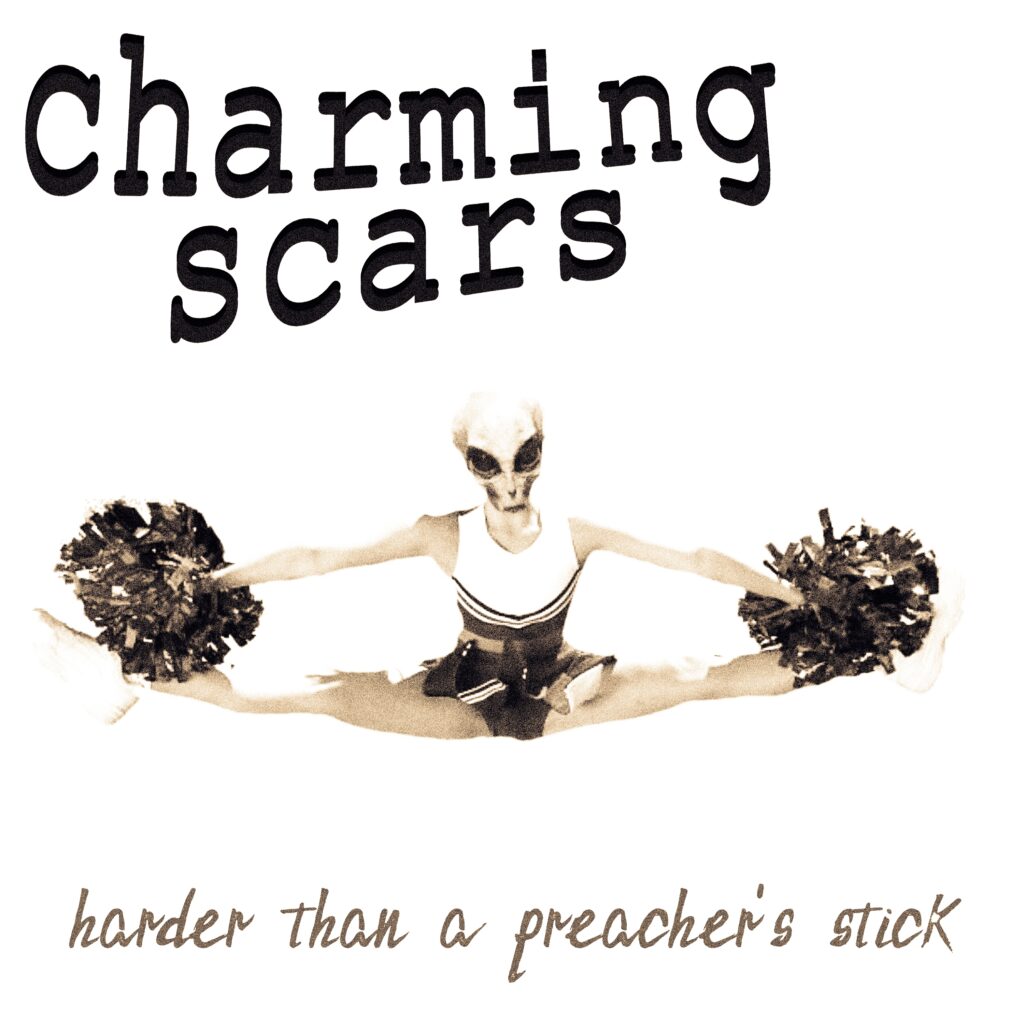
How do you handle creative blocks or self-doubt?
For self-doubt, be honest with yourself and answer the question…are you truly playing what you want to hear? As long as you are doing that, then you should be fine. If you aren’t fully satisfied that the music you are doing is exactly what you would want to hear say like if that music was being played by some imaginary band, then tell yourself you are going to fix that issue and go to work. The worst thing you can do is start wondering if other people will like it, because it will put creative barriers on your music because you will begin conforming to what you think someone else wants to hear. For musicians that think about what people want to hear and don’t get a lot of response, of course self-doubt will set in and he or she won’t know if it is even valid or not. For creative blocks, I tend to write more with my mind and less with my hands or voice. Meaning, I spend more time brainstorming and developing a feel of what I really want to hear before singing and playing guitar.
What’s a piece of advice you wish you had received earlier in your career?
Who are some of your favorite bands…if you are not writing better music than those bands, you are doing a disservice to those great bands by not trying to push past them and you are also doing yourself a disservice as well as the audience. The listener deserves more than a watered down mixed-up version of your favorite bands. This is not an act of being arrogant or self-absorbed, rather you owe it to your audience and all of your heroes to add to the music collage by pushing those boundaries. If you are going to do it, do it big and quit being safe, because that is boring and nobody wants to hear that. What am I getting at is that I wish someone would have told me years ago to set the bar super high and meet those standards, because again, it is wasting everyone’s time to not do so.
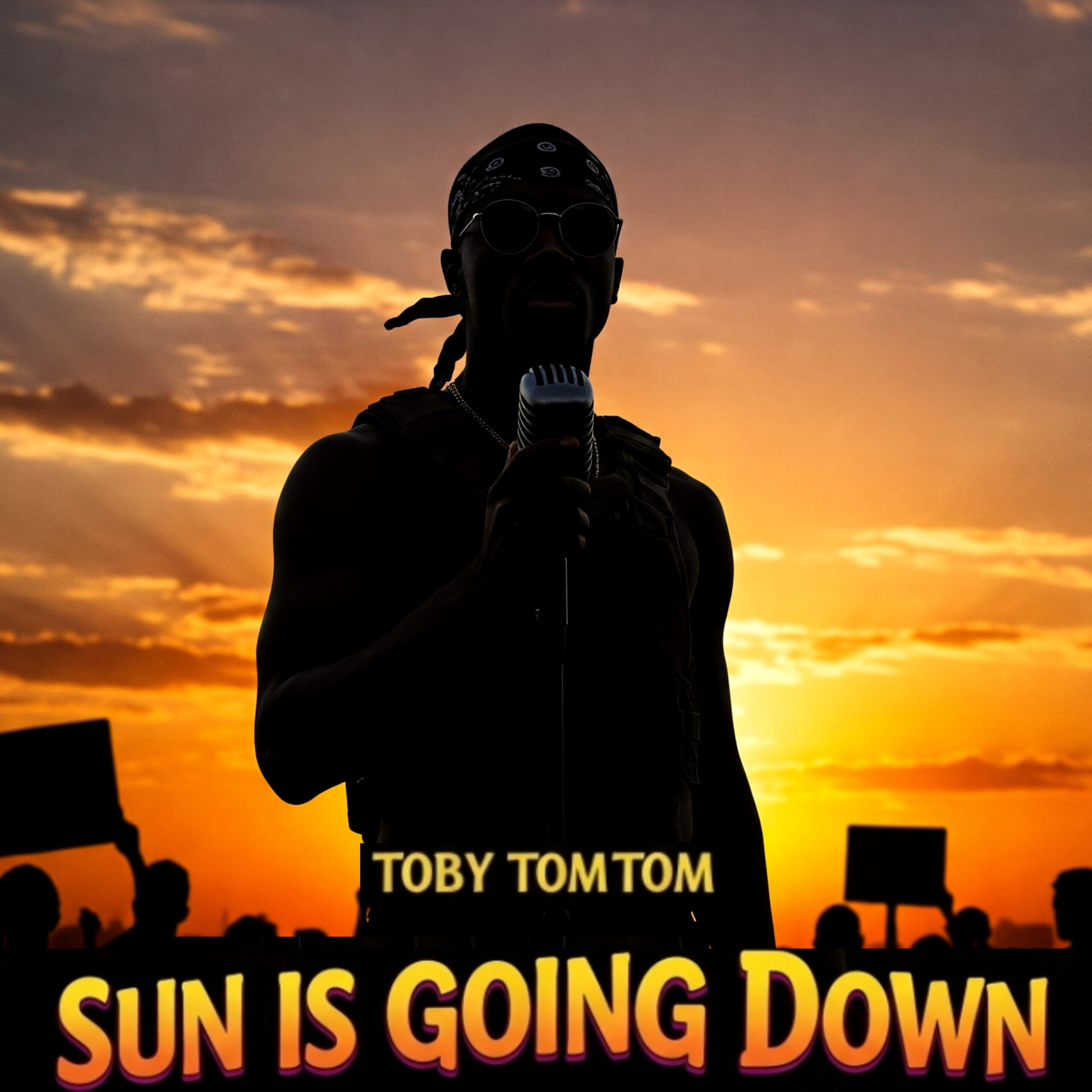
An Interview with Toby TomTom
What’s the story behind your latest song/album?
The political situation in the U.S. is distressing. The lack of leadership, the rampant hate, the mistruths, the cult-like blind following the blind. I was choosing from 3-4 songs I had already written, but the universe was speaking to me and guided me to write Sun is Going Down. The song totally began in a dark place, which is reflected in the dreamlike hip-hop/trap verses and spoken word. Eventually, it morphs into a song of defiance and fight as it weaves into an EDM/House celebration of hope and rebellion. We can never give in to this bullshit.
How has your creative process evolved over the years?
I’ve learned to trust myself more, trust my creative instincts. And follow no one. Early in my writing career, I would mimic artists I admired to some degree. Now, I incorporate my musical experiences and make them my own.
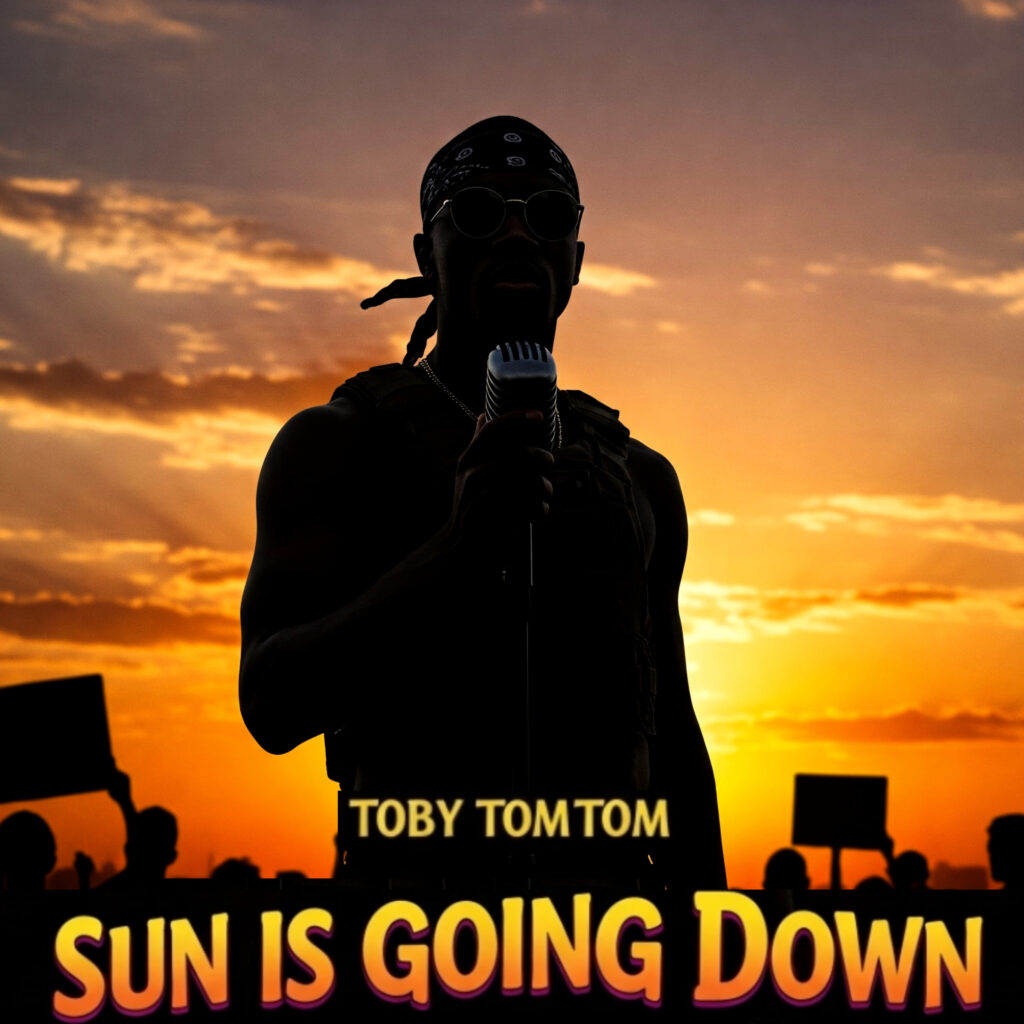
Is there a specific moment in your career that felt like a turning point?
I think my song Black Swan was a turning point for me. It was where I felt I could be experimental, be free, and not worry so much about what people thought of my mixing genres. I understand I pay a price with this with fans. For example, after my alt. folk song I Need a Yoko, I gained a lot of followers on different platforms. Lost quite a few of them with Sun is Going Down and it’s Hip-Hop/EDM/Trap foundation. I almost feel like I should apologize to them. But if they appreciate art, they will stay for the journey!
What’s one misconception people have about being a musician?
That we are broke bums, derelicts and druggies! At least, that’s what my grandmother told me I would be!
Who or what has been inspiring your music lately?
The journey into different levels of the creative process inspires me. Finding my soul in each song I write is a challenge once on the mic. When I create, singing the song always sounds great off mic, but once I put the headphones on, the challenge is to find the soul of the song, find the right vocal approach that sounds authentic. Usually, I’m just fooling around on the mic and while recording, it comes to me.
Can you share a memorable or unexpected moment from a live performance?
Last time I played live singing with my acoustic guitar, I having a great show. Everything felt good.Then, on the last song, I literally lost the chords! My friend who was backing me on guitar looked at me like I had no clothes on! I found my way back, but def memorable. My friend is a really talented musician so it was a little embarrassing too!
How do you handle creative blocks or self-doubt?
I used to experience blocks because I was always pressing. Now, I trust the songs and chords are there when I need them. Thank you God!
If you could collaborate with any artist, living or dead, who would it be and why?
Miles Davis hands down. I originally was a trumpeter. I always wanted to play with the dexterity of Freddie Hubbard, but creatively, I was most influenced by Miles. I used to play jazz with my horns electrified with a wah-wah pedal. I’d also place tin foil over the bell of my horn for a funky tonal effect. Total Miles. Only thing I didn’t do was wear clogs like he did! I love Miles because he believed art is change. He always explored and because of him, I feel free to do the same. The world constantly evolves, so our art should too.
What’s a piece of advice you wish you had received earlier in your career?
Believe in yourself, listen to your heart, don’t sweat trying to be perfect, don’t compare, and just be.
What’s next for you—any exciting projects or goals on the horizon?
My immediate goal is to get my song I Need a Yoko placed in a museum exhibit featuring her art. The next goal is to get my music placed in films and tv. The final goal is to keep creating. I am confident that my best is yet to come.
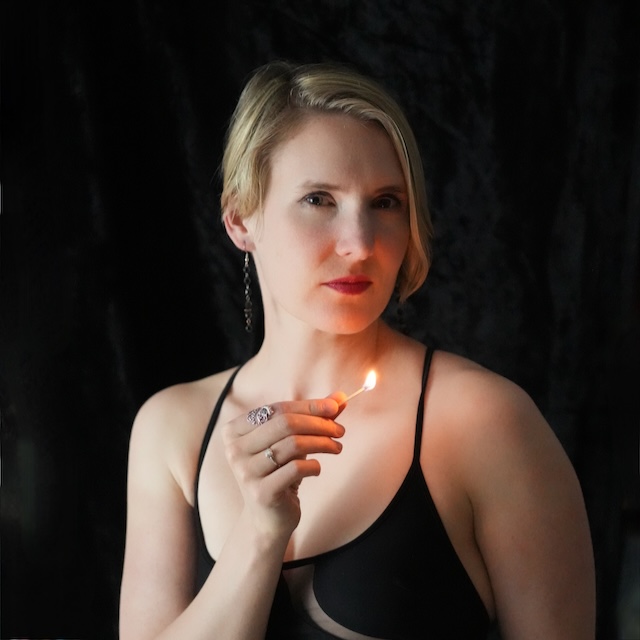
An Interview with Naomi Neva
What’s the story behind your latest song/album?
“Burning” came out of a time when I was really scared and angry about a lot of things in my own life and in the world. One part of that was a doctor with a particular knack for making me feel like a broken piece of machinery. That inspired the second verse. But more generally the song is about how isolating it can be to be angry, to be grieving, especially if the people around you aren’t feeling the same way. It also has a lot of fire imagery. I wrote it during wildfire season, when the air smelled like smoke and the sky was dark, and I couldn’t stop thinking about the fire that burned my neighborhood when I was a little kid.
Is there a specific moment in your career that felt like a turning point?
Starting to record and release my songs two years ago was a big moment for me. I’ve been writing songs and playing them for myself my whole life, but I’d mostly thought about it in terms of my own personal entertainment and emotional processing, and sometimes I’d perform them, but that wasn’t really where the songs were coming from. It’s been really fun to start to think of the songs more as an object I’m creating, and to think about how someone else might experience those songs.

Who or what has been inspiring your music lately?
A lot of the songs I’ve been writing recently have been inspired by my friends and family. Some of these songs sound like love songs, and they are, but not romantic love. Others, like “Ernestine” or “For Rosalie” are really clearly songs of support. Those are my favorites, the songs I’ve written for specific people, to tell them how much I love them and how proud I am of them.
What was the first concert you attended?
My first concert was “The Indigo Girls.” I went with my best friend when we were 14 or 15. They were amazing! There’s a little reference to that hidden in “Ernestine,” a song I wrote for my best friend, along with references to Our Poem (Christina Rossetti’s “The Goblin Market”) and a lot of other shared experiences.
What’s next for you—any exciting projects or goals on the horizon?
Yeah, I have some new music coming up! I’m working with a producer for the first time, which is really fun. I think that’s going to help me get closer to the sound I really want for these songs, but it’s also just been so much fun to have someone to talk to about the songs. She really gets what I’m trying to do with them, and I love those moments where I can feel that shared vision start to take form.
Contact: Instagram
